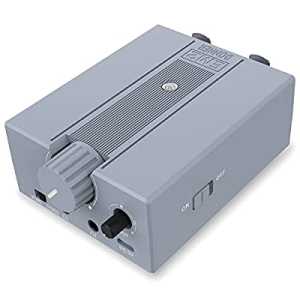
The Importance Of Early Detection In Glaucoma Management

Glaucoma is often termed the "silent thief of sight" because it can progress unnoticed until significant vision loss occurs. This condition primarily affects the optic nerve, crucial for transmitting visual information from the eye to the brain. The good news is that early detection can make a significant difference in managing glaucoma effectively.
If you're seeking glaucoma treatment in Chinchwad, early detection is crucial for preventing irreversible vision loss. Regular eye check-ups allow for timely diagnosis and effective treatment, such as medicated eye drops, laser therapy, or surgery. Addressing glaucoma in its early stages can help manage the condition and protect your vision long-term. In this blog, we'll explore why early detection is vital, how glaucoma develops, and the various methods used to catch it in its early stages.
Understanding Glaucoma
Before delving into the importance of early detection, let’s briefly understand glaucoma. Glaucoma encompasses a group of eye diseases that damage the optic nerve, usually due to elevated intraocular pressure (IOP). While high eye pressure is a significant risk factor, glaucoma can also occur in individuals with normal IOP. This makes regular eye exams crucial for everyone, especially those at higher risk.
Why Early Detection Matters
- Preventing Vision Loss
The most compelling reason for early detection is preventing irreversible vision loss. Glaucoma often has no symptoms in its initial stages, so many people may not realize they have it until significant damage has already occurred. Regular eye examinations can catch the disease before it leads to permanent vision impairment. - Better Treatment Outcomes
Detecting glaucoma early allows for a wider range of treatment options. The sooner the condition is identified, the more likely simple treatments, such as eye drops, will effectively manage it. As the disease progresses, more invasive treatments, including laser surgery or traditional surgery, may be necessary. - Monitoring Disease Progression
Early detection allows for consistent monitoring of the disease's progression. With regular eye exams, your eye care professional can track changes in your eye pressure and optic nerve health. This ongoing assessment helps adjust treatment plans, ensuring optimal condition management. - Identifying Risk Factors
Early detection also allows you to identify risk factors that may predispose you to glaucoma. Family history, age, ethnicity, and certain medical conditions (like diabetes) can increase your risk. Recognizing these factors allows you and your healthcare provider to implement preventive strategies and proactive monitoring. - Education and Empowerment
Being informed about your eye health can empower you to manage your glaucoma. Early detection often comes with education about the disease, its treatments, and lifestyle changes that can help. Understanding your condition can reduce anxiety and encourage compliance with treatment protocols.
How Glaucoma Develops
Glaucoma typically develops slowly over time. It starts with damage to the optic nerve due to increased eye pressure, often resulting from inadequate fluid drainage within the eye. This fluid build-up can lead to a gradual loss of peripheral vision. However, many people may notice these changes once they are significant.
There are different types of glaucoma, including:
- Primary Open-Angle Glaucoma: The most common form, where the drainage canals gradually become clogged over time.
- Angle-Closure Glaucoma: A more serious condition where the drainage angle becomes blocked, causing a sudden increase in eye pressure.
- Normal-Tension Glaucoma: Damage to the optic nerve occurs despite normal eye pressure levels.
- Secondary Glaucoma: This type can result from other medical conditions or medications.
Methods for Early Detection
- Comprehensive Eye Exams
Regular comprehensive eye exams are the cornerstone of early detection. During these exams, your eye doctor will:- Measure your intraocular pressure.
- Examine your optic nerve for signs of damage.
- Assess your peripheral vision.
- Perform imaging tests to evaluate the health of your optic nerve.
- The American Academy of Ophthalmology recommends that individuals with no risk factors undergo eye exams every 2 to 4 years until age 40 and then every 1 to 3 years after that.
- Visual Field Testing
This test evaluates your peripheral vision, which can be affected by glaucoma. By comparing your results to normal ranges, your eye doctor can identify early signs of vision loss. - Optical Coherence Tomography (OCT)
OCT is a non-invasive imaging test that provides detailed images of the optic nerve and retinal layers. This technology allows for early detection of changes in the optic nerve that may indicate glaucoma, even before noticeable vision loss occurs. - Pachymetry
This test measures the thickness of your cornea. Corneal thickness can influence your risk of developing glaucoma and may help your doctor tailor your treatment plan. - Risk Factor Assessment
During your eye exams, your doctor will assess any risk factors you may have for glaucoma, including family history, age, and existing medical conditions. This assessment is crucial for determining how frequently you should be monitored.
Conclusion
Early detection of glaucoma is essential for preserving your vision and ensuring effective management of the condition. Regular comprehensive eye exams, awareness of risk factors, and understanding the importance of early diagnosis can significantly impact your quality of life. If you have a family history of glaucoma or are experiencing any symptoms, don’t hesitate to schedule an eye exam. Remember, early detection can make all the difference in protecting your sight when it comes to glaucoma. Stay proactive about your eye health, and take the necessary steps to safeguard your vision for years.
Author Bio
Article Comments
No Comments!
At present there are zero comments on this article.
Why not be the first to make a comment?
Similar Articles
Search Pages
Upgrade User Account
account to full use of editor,
including hyperlinks
Article Categories
There are zero sub-categories in this parent category.
There are zero sub-categories in this parent category.











